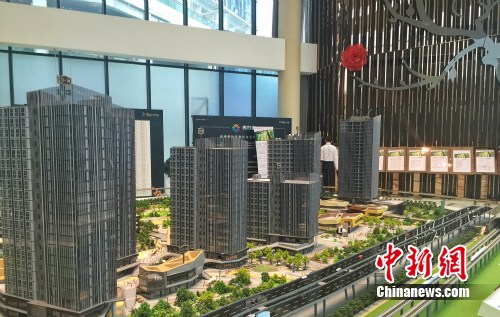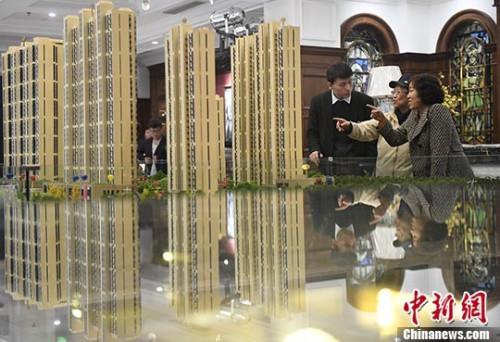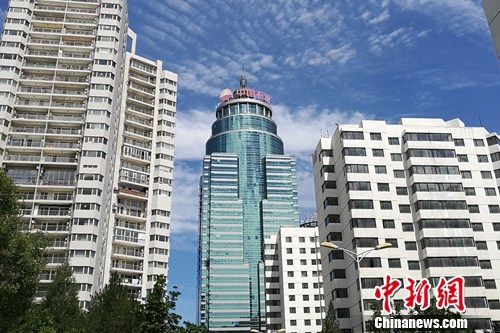Cities such as Beishangguangshen and Shenzhen are clear: commercial projects may not be changed to residential housing without authorization.
BEIJING, Beijing, May 17 (Zhongqing) Following Beijing, hot cities such as Guangzhou, Shanghai and Shenzhen have successively introduced property market regulation measures for commercial projects. Although the intensity of control is different, it is clear that commercial projects should not be linked to residential properties, and some cities have also explored control methods in architecture and design, trying to reduce the possibility of commercial projects turning to residential uses from the product development end.

After Beijing, Shanghai, Shenzhen and other places followed up to regulate the commercial market.
On March 26th, Beijing Municipal Commission of Housing and Urban-Rural Development issued a document to regulate the commercial market, saying that "commercial and office projects (hereinafter referred to as commercial projects) should be developed, constructed, sold and used in strict accordance with the planned purposes, and may not be changed to residential purposes without approval", completely changing the rules of the commercial market.
The above-mentioned policies in Beijing not only block the channels for individuals to buy projects that have not been built, are under construction or are being sold, but also set strict thresholds for individuals to buy second-hand commercial houses.
Four days later, Guangzhou proposed to strengthen the management of commercial real estate projects. "Real estate development enterprise vendors do property, the sales target should be a legal entity; The commercial property purchased by a legal entity shall not be used as a residence, and when it is transferred again, it shall be transferred to the legal entity. "
On April 21st, many departments in Chengdu jointly issued the Notice on Further Strengthening the Management of Commercial and Office Construction Projects, requiring commercial and office construction projects to be developed, constructed, sold and used in strict accordance with the nature of planned land and planning permission, and it is strictly forbidden to change them into residential purposes without authorization.
On the same day, Shanghai required that the land transfer contract should specify that office land should not be used for apartment-style office projects, and commercial land should not be used for apartment-style hotels without agreement.
On May 12th, Shenzhen also issued a document to restrict the transformation of commercial offices. In the next five years, the transformation of commercial offices, R&D buildings into apartments, stealing areas and rebuilding will be strictly restricted. "After the introduction of the New Deal, such facilities will serve more office needs, that is, they are unlikely to serve the needs of housing." Yan Yuejin, research director of the think tank center of Yiju Research Institute, said that this has a negative effect on the subsequent Shenzhen commercial projects.
So far, Beijing, Shanghai, Guangzhou, Shenzhen, Chengdu and other cities have implemented control policies for commercial projects. From the perspective of urban types, they are basically concentrated in first-tier cities and some hot-spot second-tier cities.

Product design of multi-city document management and control returning to commercial attributes
No matter from the length of policy content, release time and follow-up supporting measures, Beijing has the strictest control over commercial projects.
"In the more than one month after March 26th, the actual transaction in the commercial market in Beijing fell sharply." Zhang Dawei, chief analyst of Zhongyuan Real Estate, bluntly said that it is the strictest commercial purchase restriction policy in history, which has dealt a significant blow to the overheated commercial market.
According to the policy of multi-site business regulation, it is a basic principle not to change it to residential use without authorization. For real estate development enterprises that change commercial real estate projects into residential purposes in violation of the plan, they all take a firm attitude of "once verified and dealt with seriously".
On the other hand, there are also differences in the intensity of regulation. Except for Beijing, other cities have not explicitly restricted individual commercial loan purchasers from running projects. Shenzhen, Chengdu and other places focus on product design control at the supply end.
For the development enterprises, the minimum division unit of newly-reported commercial projects is strictly regulated as not less than 500 square meters in Beijing, not less than 300 square meters in Guangzhou, and only part of the proportion is required in Shenzhen. In terms of transfer, Beijing and Guangzhou stipulate that purchased commercial properties can be transferred to legal entities and individuals, but Guangzhou has set "additional conditions" for the transfer, that is, individuals can not transfer again until they have obtained the immovable property certificate for two years.

Why is it limited? Crack down on speculation and limit the influx of people
"The activity of commercial projects is mainly due to the restriction on the purchase of houses and the high-end of houses, so a large number of public buildings are supported in the residential land." Speaking of the heat of the commercial market, Zhang Dawei believes that it has something to do with the increase in population.
Zhang Dawei said that in first-tier cities such as Beijing and Shanghai, the demand for permanent residents’ housing is huge. Some projects in the name of commerce, hotels and offices, by dividing property rights, change the use attributes of commercial projects, take "quasi-housing" as a selling point, and play a marginal role in electricity and water use to attract buyers.
However, due to the different nature of land use, there are obvious differences between commercial projects and commercial housing. First of all, the property right is 40 or 50 years, and there is no residential facilities (school district houses, etc.), with high residential density and small apartment type; The most important thing is that the house price will be lowered by 50-60% compared with the price of commercial housing in the same region.
"Low housing prices and no purchase restrictions are the main reasons for choosing commercial projects." Many interviewees who have purchased commercial projects told the reporter of Zhongxin. com.
Why should we regulate the commercial market? "The first is the planning problem. The business that is originally a residential facility has the property of residence, which is contrary to the planning and the related facilities cannot be followed up; The other is the population problem, such as the large population of commercial projects in Beijing and Shenzhen; In addition, due to the low land price of commercial land, developers take land with commercial land but sell it at residential prices, earning extra profits in disguise. " Zhang Dawei said.
Hua Zheng, an associate professor in the Department of Land Management, School of Public Administration, Renmin University of China, pointed out in an interview with the media that commercial regulation will ensure that residential houses and commercial offices belong to commercial offices, reduce the customer base of commercial properties, reduce the enthusiasm of developers and investors to run products, and then reduce the premium level of commercial land. "Cracking down on speculation in the commercial market will also limit the disorderly influx of population into big cities to a certain extent".

It’s not over! More cities may be planning to standardize the business market.
"There are cities that are brewing or starting to set off a new round of blockades ‘ Business changes to residence ’ 、‘ Do change and live ’ The policy tide. " Zhang Dawei predicted that before, the investment demand for buying commercial projects due to residential purchase restriction may face great risks.
Yan Yuejin, who predicted that Shenzhen and Shanghai would follow up the regulation of commercial projects, told reporters that in the future, some hot cities will actively follow up the purchase restriction of commercial projects. Although the intensity of control will not be equal to that of Beijing, one thing is certain: "Commercial projects are no longer linked to residential properties."
In Yan Yuejin’s view, in terms of policy strength, the measures to directly restrict or prohibit sales represented by Beijing are the most severe, and the control effect is the most obvious; However, the following mainstream model may be to standardize the supply side and actively control product design.
"Beijing and Guangzhou will not rule out the formulation of new policies for existing properties, for example, reasonable guidance for some buyers who sell and transfer houses." Some insiders analyzed to reporters. (End)